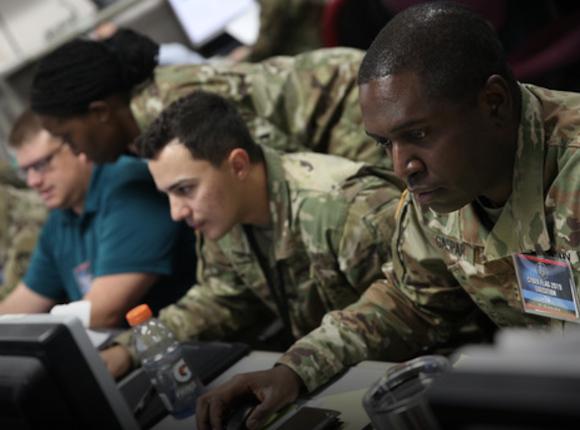On October 16, Reuters comes out with a sensation article "Exclusive: US carried out secret cyber strike on Iran in wake of Saudi oil attack: officials", so at least say well-informed American journalists Idrees Ali and Phil Stewart, based on statements by unidentified witnesses ...
When asked about this, Iranian Minister for Communications and Information Technology Mohammad Javad Azari-Jahromi ironically replied that the US must have dreamed of it.
And yet it makes news ...
But why so much emphasis?
What's new in such news?
Is it really a surprise?
Why has the news been picked up in recent days by major English-language newspapers?
Is it possible that nobody expected such a thing?
All legitimate questions, but apparently unanswered. We try to answer ourselves, at least in part.
In the first place, on closer inspection, there is no reason for much fuss.
A few weeks ago (September 23) an article in the New York Times talked about the search for a target to attack through the cyber arsenal.
General Nakasone, head of the Cyber Command, reminded President Trump for the occasion that the cyber arsenal is not like a magic bullet ...
but obviously he was wrong, not only is the US cyber arsenal magical but even prescient ... or perhaps much more simply the attack was already planned for some time, something very normal in the military world.
The modus operandi is certainly not new: plans are prepared that are kept in the drawer or developed only in part and then used when necessary.
In the case of a cyber attack against a target of an enemy country, it is not uncommon to use an APT (Advanced Persistent Threat) or a persistent operation over time, based perhaps on one or more botnet already deployed.
It then acts when needed, hitting, so to speak, in depth and to hurt.
But then, if everything was planned, why all this emphasis? Is this perhaps an operation of influence?
This is what comes to mind if you look at what happened, let's review the main steps:
- The September 14th USA, UAE and some European countries declare that Iran has attacked a refinery. Iran denies. A Yemeni group attributes its merits (but this is not comfortable and the thing is not considered serious ...);
- The September 23th the US announcement (through the media) of the search for an Iranian target to be struck by a cyber weapon, with the justification that a cyber attack will not cost human casualties (!!!);
- The 16 October a "leak" informs us of the cyber attack. Information resumed and quickly amplified ... damage suffered by the opponent?
Don't notice ... or rather, officially the operation should have the effect of hitting Iran's ability to spread propaganda and it would be something that should hit the hardware, but nothing more has leaked.
But then, what is the point of all this?
One of the principles of the Military Art is the exploitation of surprise.
Surprise brings down the opponent's morale, pushes him to make mistakes, makes him feel inferior ...
Why give up the surprise?
It should be borne in mind that at stake there are not only interests in the region, more unstable than ever, but also the credibility of Western countries to be able to win the game, credibility already questioned in Syria and on the Kurdish question.
In all of this there is the approach of the American elections. It is interesting to mention, in the Reuters article, the actions of a group called "Phosphorous", considered by Microsoft to be close to the Iranian government, and which hit members of the presidential campaign between August and September.
Everything suggests that the interests at stake are much broader than those of Iran and therefore we move into a chessboard where the Pawn hides the Tower that protects the Queen ...
On the other hand, if you give up something precious, it is usually for something that is worth it, or something even more important ...
To learn more:
- https://www.reuters.com/article/us-usa-iran-military-cyber-exclusive/exc...
- https://www.nytimes.com/2019/09/23/world/middleeast/iran-cyberattack-us....
- https://arstechnica.com/information-technology/2019/10/us-claims-cyber-s...
- https://www.independent.co.uk/news/world/middle-east/us-cyber-attack-sau...
- https://www.nytimes.com/2019/09/23/world/middleeast/iran-cyberattack-us....
- https://www.weau.com/content/news/UK-says-Iran-responsible-for-attack-on...
- https://www.independent.co.uk/topic/Yemen
Photo: US Cyber Command












